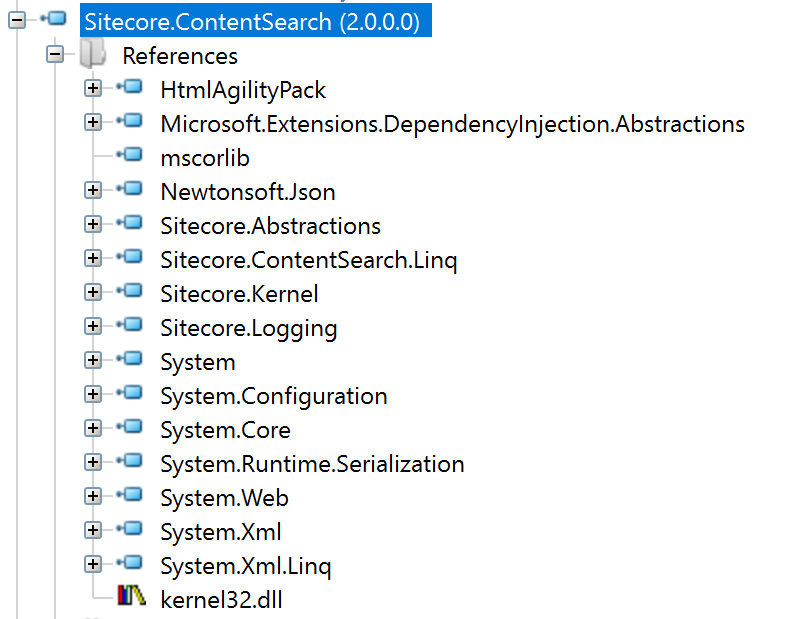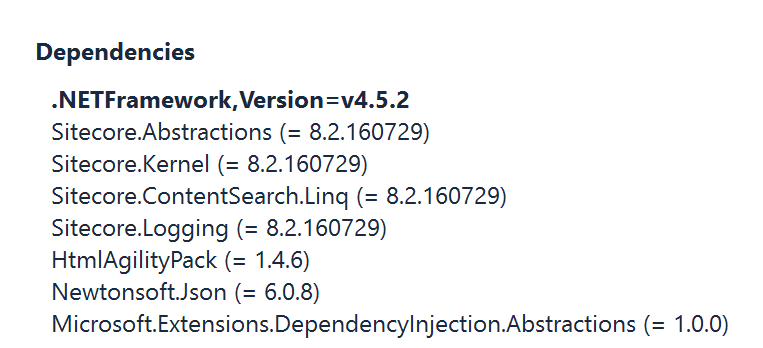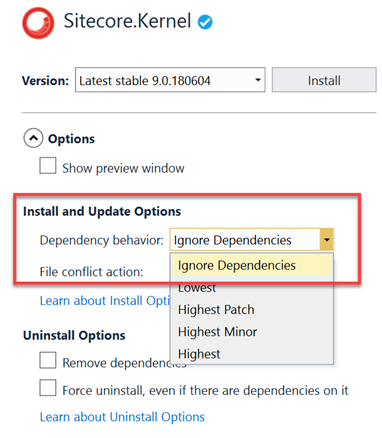The package without NoReferences suffix brings dependent Nugets containing additional DLLs. These DLLs are defined as dependencies in Nuget definition. If you check the dependencies list you will find Sitecore DLLs and third party DLLs like Newtonsoft.Json or HtmlAgilityPack in it.
The package with NoReferences suffix does not bring any dependencies. Developer expected to identify and add all required DLLs manually.
Now let's talk about what exactly is included in list of dependencies. The answer why some DLLs are included and others are not becomes clear if you check DLL references in the tool like ILSpy.
These are references in Sitecore.ContentSearch.dll:

And these are dependencies of Sitecore.ContentSearch Nuget package:

There is a clear pattern here.
The Nuget package includes referenced assemblies as dependencies.
Now we can talk about what an assembly reference is and how it works. When our assembly executes its code it often uses types from external assemblies. References are the guidance for .NET to load the assembly that contains the required type. Interestingly, references are not used when an assembly is loaded, but when the code is executed.
When the referenced assembly is missing, the application may work fine if any types from that assembly are not used at runtime.
From mentioned above you can see that the regular Nuget package is developer's safe harbour and the default choice. It includes all the references required at run-time, so you can execute any code without fear to get Could not load file or assembly error.
*NoReferences Nuget package can be used if you want to have full control over what is referenced. You can reduce amount of DLLs in your bin folder or use some specific dependency version.


